
She entered the Cistercian Buenafuente del Sistal Convent the day that Joseph Ratzinger (now Benedict XVI) was born, and today Sister Teresa is 103 years old and the world’s record holder for having lived the longest as a cloistered nun.
After 84 years as a cloistered nun, Sister Teresa says that the greatest gift she has received has been prayer: “Without it, one cannot sustain oneself. I never cease repeating: ‘Thank you, forgive. Thank you, forgive.'”
The nun is one of 10 cloistered nuns profiled in the Spanish-language book “¿Qué hace una chica como tú en un sitio como éste?” (What’s a Girl Like You Doing in a Place Like This?). In the book, author Jesús Garcia brings to light the secluded world of cloistered nuns by getting to know what life is like behind the grail, and what inspired them to join.
Sister Teresa’s story began as young girl living in Alava, Spain. She was known then as Valeria, and she was happy with her life on the family farm. “We were in the field from morning ’til night, working, but we were happy,” she said.
The eldest of seven children, her father saw how hard Valeria and her younger sister worked and he wanted a different life for them. “Thinking nuns didn’t work, [my father] would say to my sister and me: ‘Wouldn’t you like to be nuns?'” she recalls.
“I didn’t like nuns,” she continued, “given how comfortable I was at home, [but] to please my father, [I] prayed to the patroness of Vitoria and asked her to give me a vocation. And did she give me one!”
Upon entering the Cistercian convent in Guadalajara, Spain, Valeria took the name Teresa. “I was afraid to enter, but the Lord helped me,” she said. The sister said that she prayed to both God and St. Teresa for the courage to be committed to her new vocation.
Though Sister Teresa says that there was a time when she wondered about her contribution to society from behind the convent walls, her worries were soon put to rest: “Once, I was tempted to imagine how my life would be outside [the convent] because I felt I wasn’t contributing anything by being here.”
She adds that it is a concern of many cloistered nuns. After consulting a priest about her feelings, Sister Teresa says “He told me I had a very beautiful vocation; that it’s worthwhile.”
Sister Teresa says that she is very happy and does not desire anything from the outside world. “It’s a grace from God,” she says. “I know that many won’t understand my way of living, but I don’t understand any other.”
Courtesy of Zenit.org, the world seen from Rome.
Like this:
Like Loading...
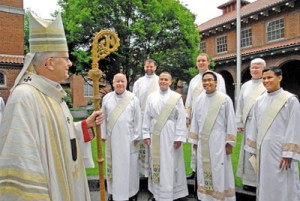 I thought I would end a busy week with this uplifting post from the Catholic Sentinel in Portland, Oregon. It’s about what Archbishop John Vlazny of Portland called “The Magnificent Seven“–the seven men ordained for the archdiocese in 2009. This was their largest ordination class since the 1970s.
I thought I would end a busy week with this uplifting post from the Catholic Sentinel in Portland, Oregon. It’s about what Archbishop John Vlazny of Portland called “The Magnificent Seven“–the seven men ordained for the archdiocese in 2009. This was their largest ordination class since the 1970s.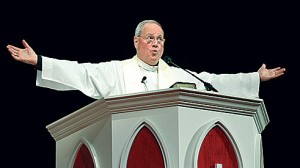 Archbishop Timothy M. Dolan of New York gave a stirring homily last month at the massive, sixteenth annual Atlanta Eucharistic Congress, which this year was devoted to vocations. Here are some of his comments, as reported by the
Archbishop Timothy M. Dolan of New York gave a stirring homily last month at the massive, sixteenth annual Atlanta Eucharistic Congress, which this year was devoted to vocations. Here are some of his comments, as reported by the 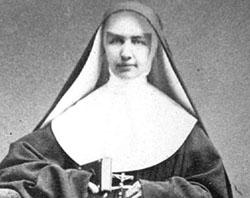 Last May we noted
Last May we noted  I encourage our readers to check out
I encourage our readers to check out 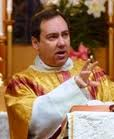 Fr. Z
Fr. Z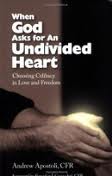 For those looking for answers to many practical questions about celibacy, we heartily recommend
For those looking for answers to many practical questions about celibacy, we heartily recommend  The Catechism of the Catholic Church is often touted as an excellent resource for Scripture study because of the extensive biblical references. I find that the Catechism is also good for word studies as well.
The Catechism of the Catholic Church is often touted as an excellent resource for Scripture study because of the extensive biblical references. I find that the Catechism is also good for word studies as well.